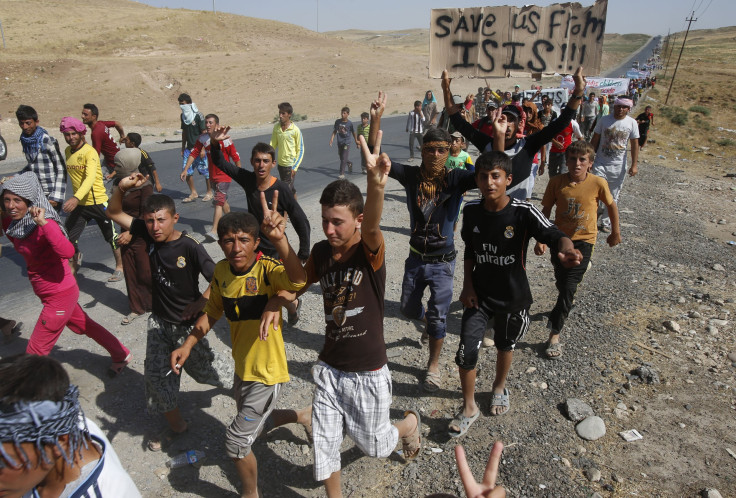UN Announces Level-3 Humanitarian Crisis In Iraq While Sinjar Situation Better Than Feared

The United Nations on Wednesday graded the humanitarian crisis in Iraq at Level 3, its highest level of emergency. The U.N. Security Council also said that it backed the appointment of Haider al-Abadi as the new prime minister, and urged him to quickly select his cabinet.
The U.N.’s decision to announce the “Level-3 Emergency” followed the capture of large swathes of land in Iraq’s north and west by the Sunni extremist group Islamic State, formerly known as ISIS, and the group's persecution of minority communities such as the Yazidi, who fled to Mount Sinjar, according to Associated Press.
“The members of the Security Council urge the Prime Minister-designate, Haider al-Abadi, to work swiftly to form such a Government as quickly as possible and within the constitutional timeframe,” the U.N. Security Council said in a statement Wednesday.
The U.N.’s declaration comes at a time when the country's outgoing prime minister Nouri al-Maliki has filed an objection to the appointment of Abadi by President Fouad Massoum claiming that the appointment violates constitutional laws.
Meanwhile, the U.S., which had sent a 20-person mission to Mount Sinjar to help evacuate the Yazidi minority community from the mountain range, said that the situation was not as bad as expected, and credited the delivery of humanitarian aid for an improvement in the situation.
Washington, on Tuesday, had also sent 130 military advisers and conducted airstrikes to assist government forces and local Kurdish forces to take back control of the land taken over by the militants.
© Copyright IBTimes 2025. All rights reserved.





















